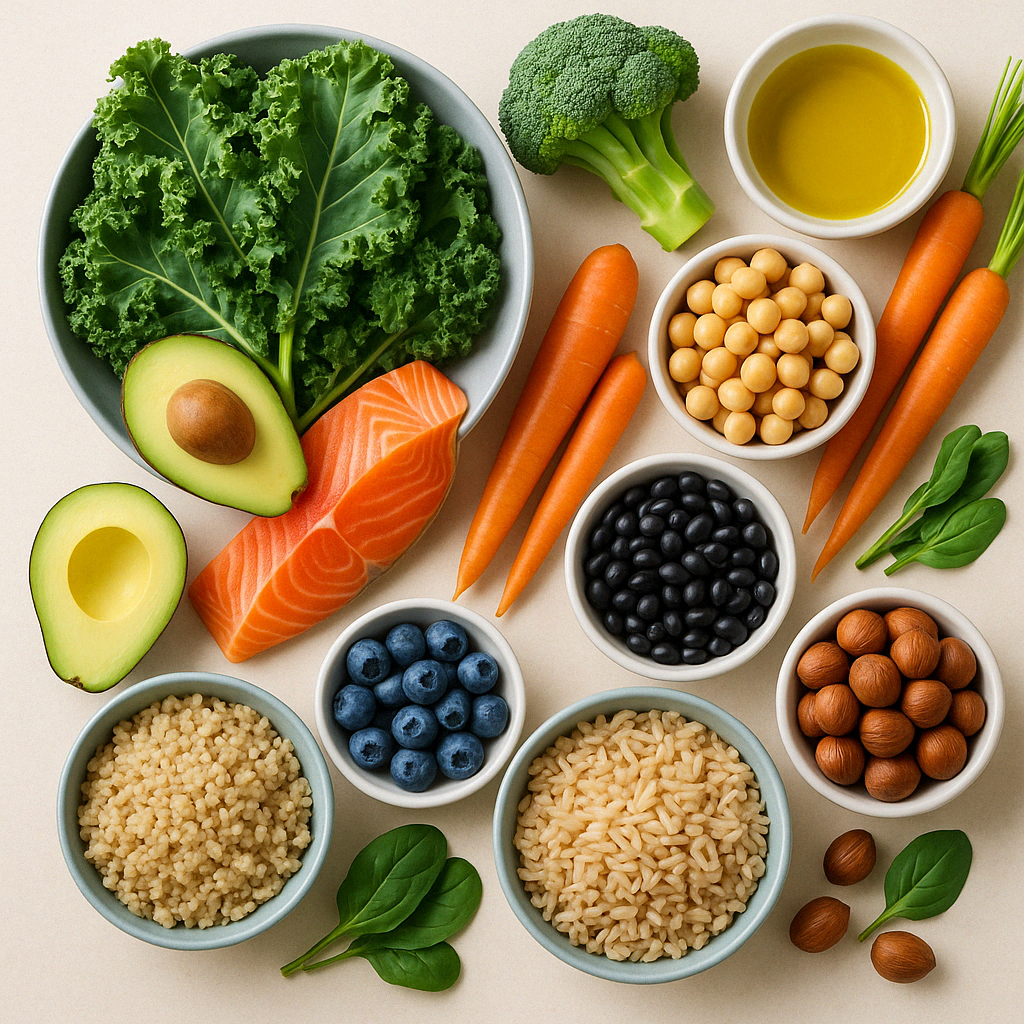In the pursuit of a vibrant, long-lasting life, few strategies are as universally advocated—and yet so widely misunderstood—as the idea of eating a healthy diet. Conversations about nutrition are often dominated by trends, dietary restrictions, or fads that promise quick fixes and immediate transformations. But when we move past the noise and examine what science consistently tells us about the best diet foods for optimal health, a clearer picture emerges—one grounded in evidence, metabolic understanding, and real-world applicability. Rather than seeking miracle foods, we should ask what food is good for long-term wellness, cognitive clarity, and disease prevention. As research continues to evolve, a growing body of evidence helps us identify not only which foods are good but also why these foods have such profound impacts on our physiology.
You may also like: Best Foods for Cognitive Function: What Science Reveals About Brain Nourishment, Focus, and Mental Clarity
Nutritional science today does not support the notion of one-size-fits-all diets. Instead, it affirms the importance of tailoring dietary patterns to support individual needs, microbiomes, lifestyles, and health goals. However, some universal truths remain: certain foods stand out for their potent ability to nourish, protect, and energize. These excellent diet foods aren’t simply low in calories—they are rich in bioavailable nutrients, phytochemicals, and molecular compounds that modulate inflammation, support hormone balance, and optimize metabolic health. Understanding which foods deliver these benefits and how they fit into the best diet for health can empower individuals to make informed, sustainable dietary choices rooted in science rather than myth.
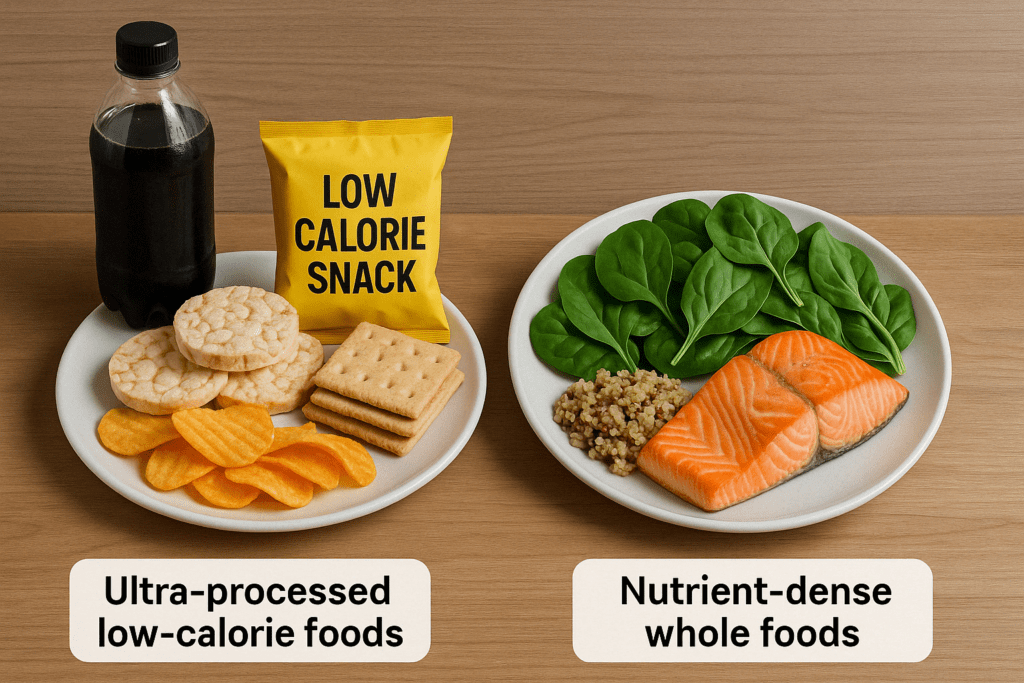
Rethinking “Healthy”: Moving Beyond Calorie Counting
For decades, calorie counting dominated mainstream dietary advice. The idea was simple: if you consume fewer calories than you burn, you lose weight and therefore become healthier. While energy balance remains relevant, nutritional quality is now recognized as a far more crucial determinant of health outcomes than calorie content alone. Ultra-processed foods, for example, may be low in calories but still disrupt hormonal signaling, impair gut health, and promote cravings.
Instead, nutritional science encourages us to evaluate the nutrient density of foods—how many vitamins, minerals, antioxidants, and phytochemicals a food provides relative to its caloric load. Leafy greens like kale and spinach, for instance, offer tremendous nutritional value per bite. They are rich in folate, magnesium, and fiber while remaining low in calories, making them excellent diet foods that support everything from heart health to detoxification pathways in the liver. Similarly, fatty fish such as wild-caught salmon provide omega-3 fatty acids critical for cognitive health and inflammation control, without contributing to metabolic disturbances that often accompany high-glycemic meals.
This shift away from purely caloric assessment to nutrient-focused selection transforms how we define the best foods for you. It also challenges outdated paradigms by reframing dietary goals—not as restrictions, but as opportunities to nourish with intention.
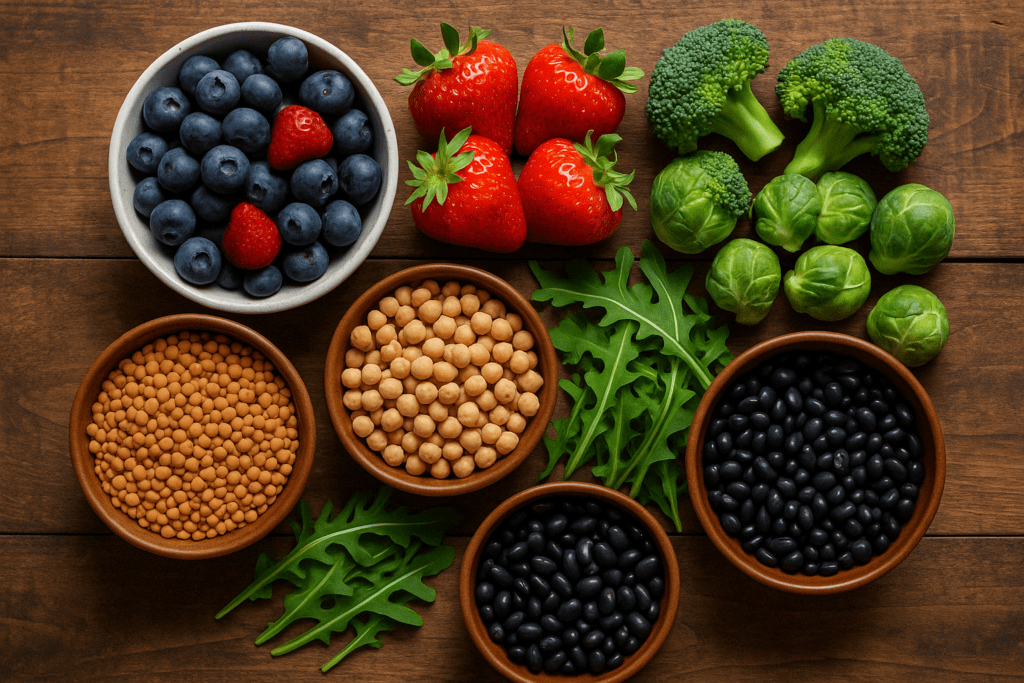
Plant-Based Powerhouses: Fiber, Phytochemicals, and Disease Prevention
A wide array of research continues to emphasize the profound benefits of incorporating plant-based foods into daily meals. These aren’t just “filler” items to support weight loss—they are functional, bioactive agents in the body’s disease prevention arsenal. Cruciferous vegetables such as broccoli, Brussels sprouts, and arugula, for example, contain sulforaphane, a compound shown to support detoxification enzymes, promote cellular repair, and potentially reduce the risk of cancer.
Beans, lentils, and chickpeas serve as another category of good diet foods that benefit metabolic and cardiovascular health alike. Their high fiber content slows glucose absorption, supports healthy cholesterol levels, and feeds beneficial gut bacteria. Emerging research highlights the gut microbiome as a crucial modulator of not just digestion, but immune regulation, mood, and even the body’s inflammatory responses. In this context, legumes stand out as some of the best diet foods for long-term well-being.
Berries—particularly blueberries, strawberries, and raspberries—deserve a spotlight not only for their antioxidant content but also for their ability to modulate blood sugar and support vascular integrity. They provide anthocyanins, which are flavonoids known to reduce oxidative stress and improve endothelial function. These aren’t just colorful additions to your plate; they represent what food is good for preventing chronic disease and enhancing resilience against cellular aging.
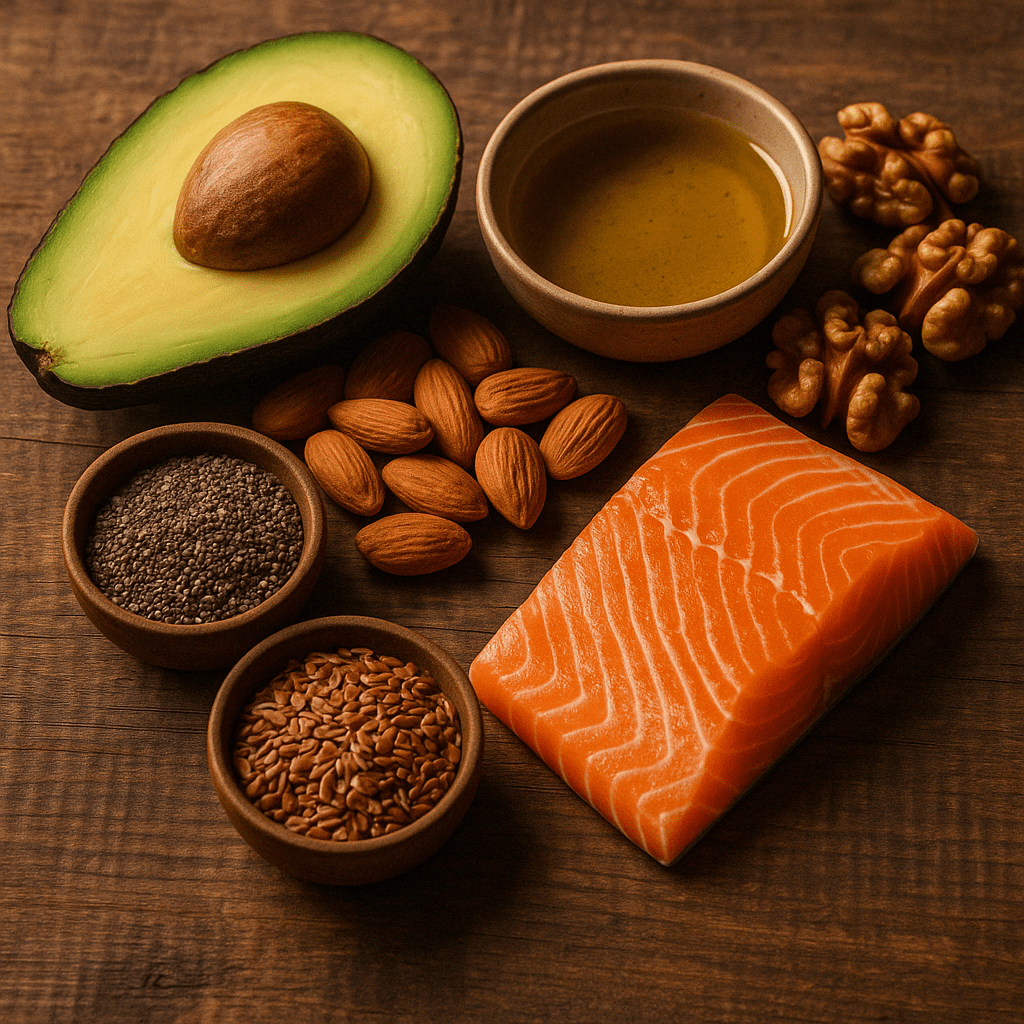
Fat Isn’t the Enemy: Healthy Fats That Heal
Decades of low-fat dietary advice gave fats a reputation they didn’t deserve. While trans fats and certain refined oils can indeed be harmful, naturally occurring fats from whole foods are essential for hormone production, brain function, and the absorption of fat-soluble vitamins. Avocados, for instance, offer monounsaturated fats that support heart health and help regulate appetite by promoting satiety. Their potassium content also contributes to blood pressure regulation.
Nuts and seeds are excellent diet foods for more than just their healthy fats. Almonds provide vitamin E and magnesium, both crucial for cardiovascular and nervous system function. Chia seeds, flaxseeds, and walnuts are rich in alpha-linolenic acid (ALA), a plant-based omega-3 that has been linked to reduced inflammation and improved lipid profiles.
Perhaps no fat has made a bigger comeback than olive oil. Extra virgin olive oil, a cornerstone of the Mediterranean diet, has been the subject of numerous clinical trials confirming its role in reducing cardiovascular disease risk, improving lipid markers, and enhancing antioxidant capacity. When we evaluate what is healthier within fat categories, olive oil clearly stands apart, demonstrating that not all fats are created equal.
Protein Quality: Building Blocks for More Than Muscle
Protein often occupies the center of the dietary debate, especially for those interested in weight management or muscle preservation. However, the quality and source of protein matter greatly. Lean poultry, eggs, and low-mercury fish provide complete amino acid profiles necessary for cellular repair, immune function, and neurotransmitter synthesis. But even within the animal protein category, there’s nuance—grass-fed beef, for instance, contains more omega-3s and conjugated linoleic acid (CLA) compared to grain-fed varieties, making it a better option when prioritizing the best diet for health.
Plant-based proteins also deserve serious consideration. Quinoa, hemp seeds, and soy products such as tempeh and edamame are examples of complete proteins from plants that support metabolic flexibility and longevity. Including a balance of animal and plant proteins can contribute to more diverse nutrient intake and is associated with a lower risk of cardiovascular disease and certain cancers.
Furthermore, science increasingly supports the importance of protein timing and distribution throughout the day. Rather than concentrating protein in one meal, spreading intake evenly may support better muscle maintenance, especially as we age. For those wondering what food is good for preserving strength and mobility, this insight is essential.
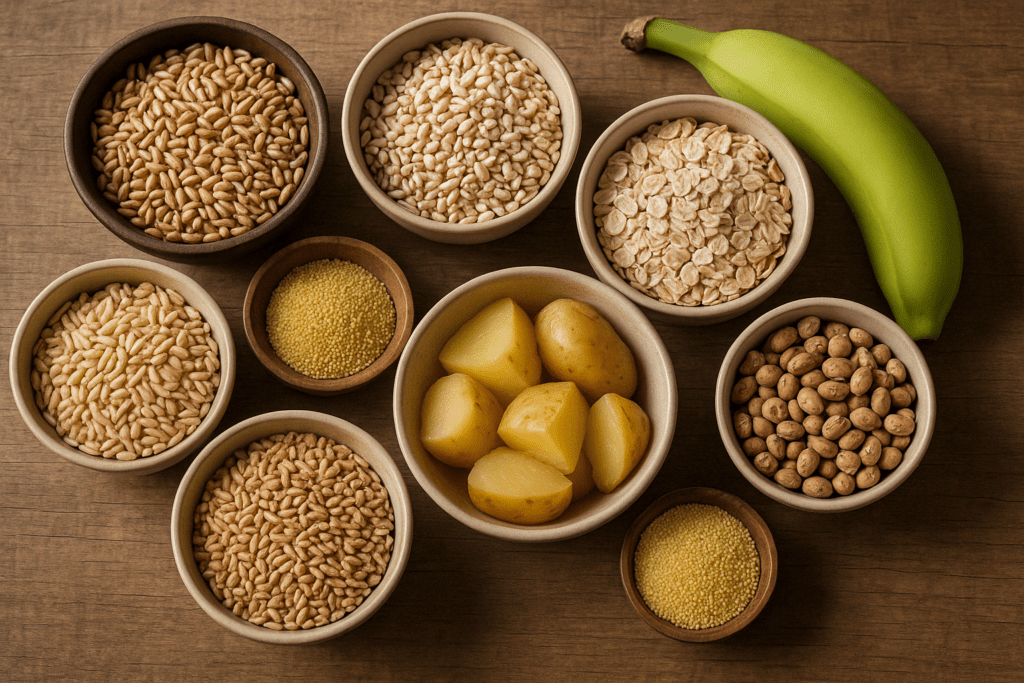
Whole Grains and Resistant Starch: Redefining Carbohydrates
Carbohydrates have endured significant scrutiny in the health world, often being mischaracterized as the root of metabolic dysfunction. However, this blanket vilification ignores the diversity and biological complexity of carbs. Whole grains like oats, barley, and farro offer fiber, B vitamins, and compounds such as beta-glucans that modulate cholesterol and blood sugar. Unlike their refined counterparts, whole grains slow glucose absorption and contribute to satiety, making them a reliable source of sustained energy.
Resistant starches—found in foods like green bananas, cooked and cooled potatoes, and legumes—resist digestion in the small intestine and instead serve as fermentable fibers for the gut microbiota. This fermentation process yields short-chain fatty acids like butyrate, which have anti-inflammatory effects and support gut barrier function. The inclusion of such carbohydrates in the diet exemplifies what food is good for both digestive health and metabolic regulation.
Moreover, ancient grains like teff, millet, and amaranth provide additional phytochemicals and minerals not commonly found in modern processed grains, expanding the spectrum of benefits. Recognizing these distinctions helps clarify what is healthier within carbohydrate choices and supports a more nuanced understanding of how carbs fit into a balanced, evidence-based dietary plan.
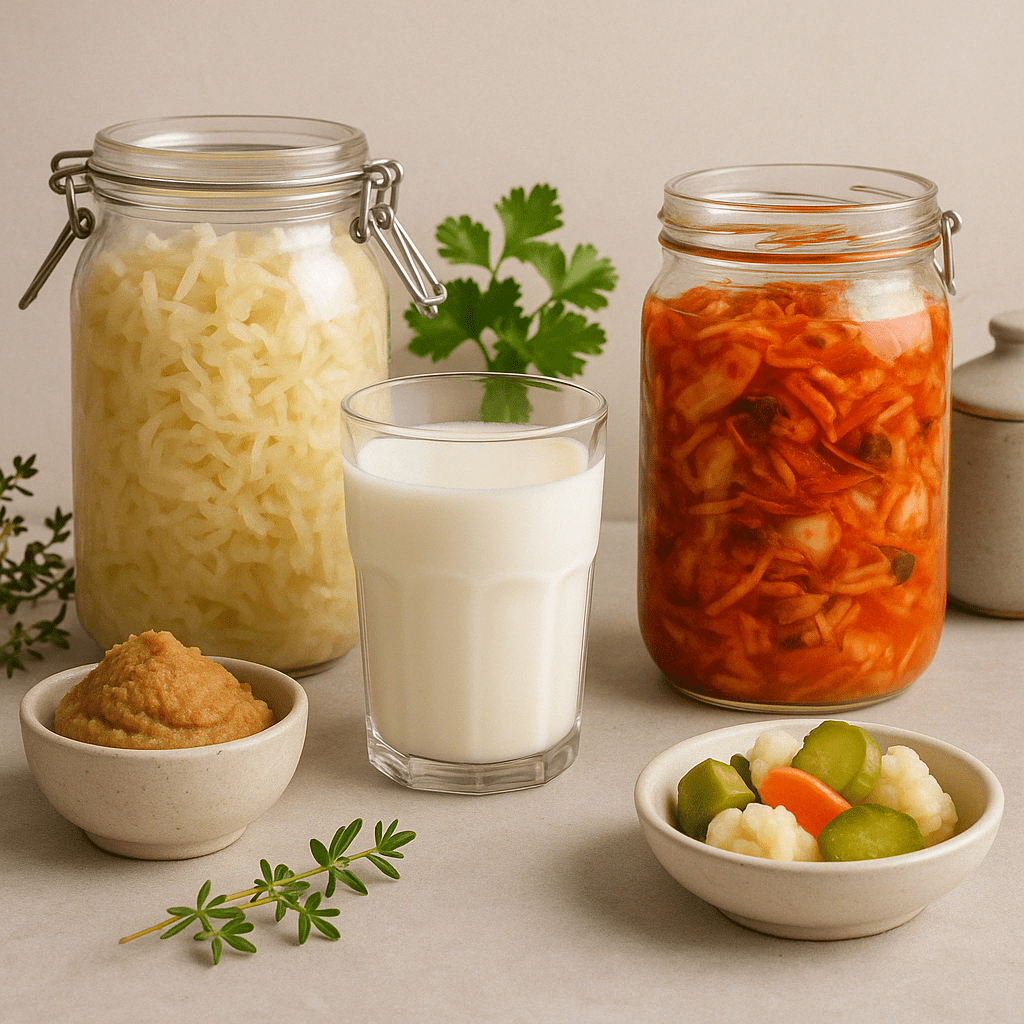
Fermented Foods: Gut Health and Beyond
Fermented foods such as kefir, kimchi, sauerkraut, and miso have surged in popularity for good reason. These traditional foods harbor beneficial bacteria that interact with the gut’s microbiome, influencing everything from immune defense to mood regulation. Live cultures present in fermented foods help restore microbial diversity, which is crucial after antibiotic use or in individuals with dysbiosis linked to conditions such as irritable bowel syndrome or obesity.
Fermented foods also enhance nutrient availability. The fermentation process can increase the bioavailability of B vitamins, vitamin K2, and amino acids while reducing antinutrients that inhibit mineral absorption. This means that excellent diet foods aren’t always defined by their original nutritional profile but also by how those nutrients are made accessible through preparation techniques.
Modern research suggests that consistent consumption of fermented foods may lower systemic inflammation, improve insulin sensitivity, and enhance mental clarity. When evaluating the best foods for you, including some form of fermented fare can offer subtle but powerful health advantages that extend far beyond digestion alone.
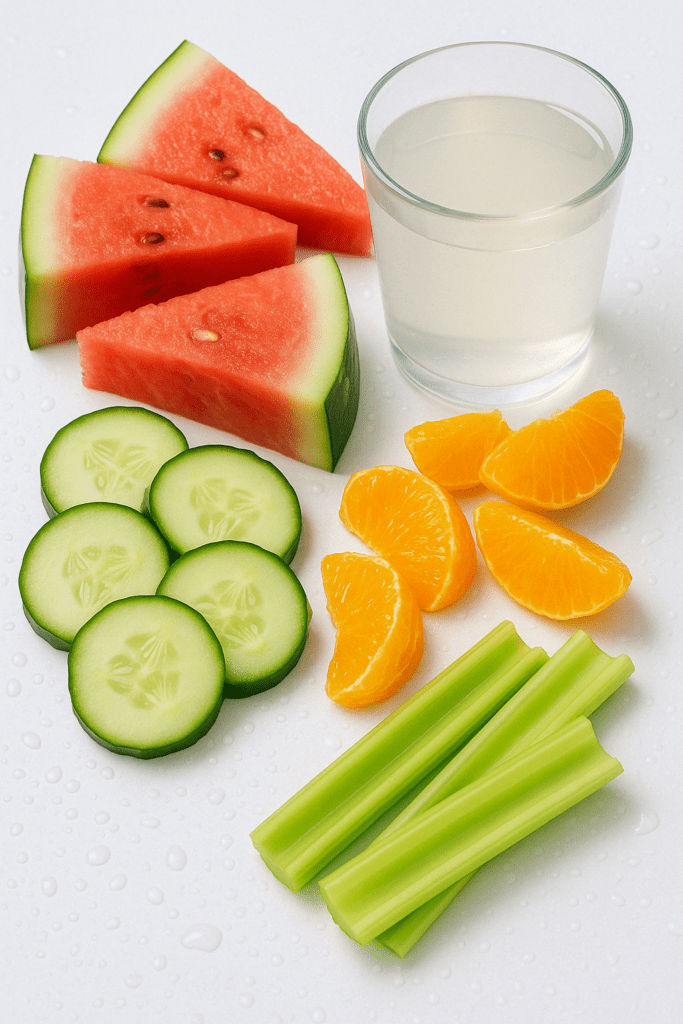
Hydration Through Nutrition: Water-Rich Foods That Nourish
While water is essential, the role of hydrating foods in overall health is often overlooked. Foods like cucumbers, oranges, watermelon, and celery not only contribute to fluid intake but also supply electrolytes such as potassium and magnesium that support cellular hydration and muscular function. Particularly in hot climates or during physical exertion, these water-rich foods can help maintain energy and thermoregulation.
Coconut water, in its pure, unsweetened form, is a naturally occurring electrolyte beverage that rehydrates while offering trace minerals. Similarly, soups made with mineral-rich broths—especially those including seaweed or root vegetables—can help replenish nutrients lost through sweat and metabolic processes. These are more than good diet foods; they represent intelligent hydration strategies grounded in biology.
Moreover, many fruits and vegetables with high water content are also low in energy density and high in fiber, which supports satiety. When assessing what is healthier among snack options or light meals, these hydrating foods often outperform processed choices, providing both nourishment and refreshment.
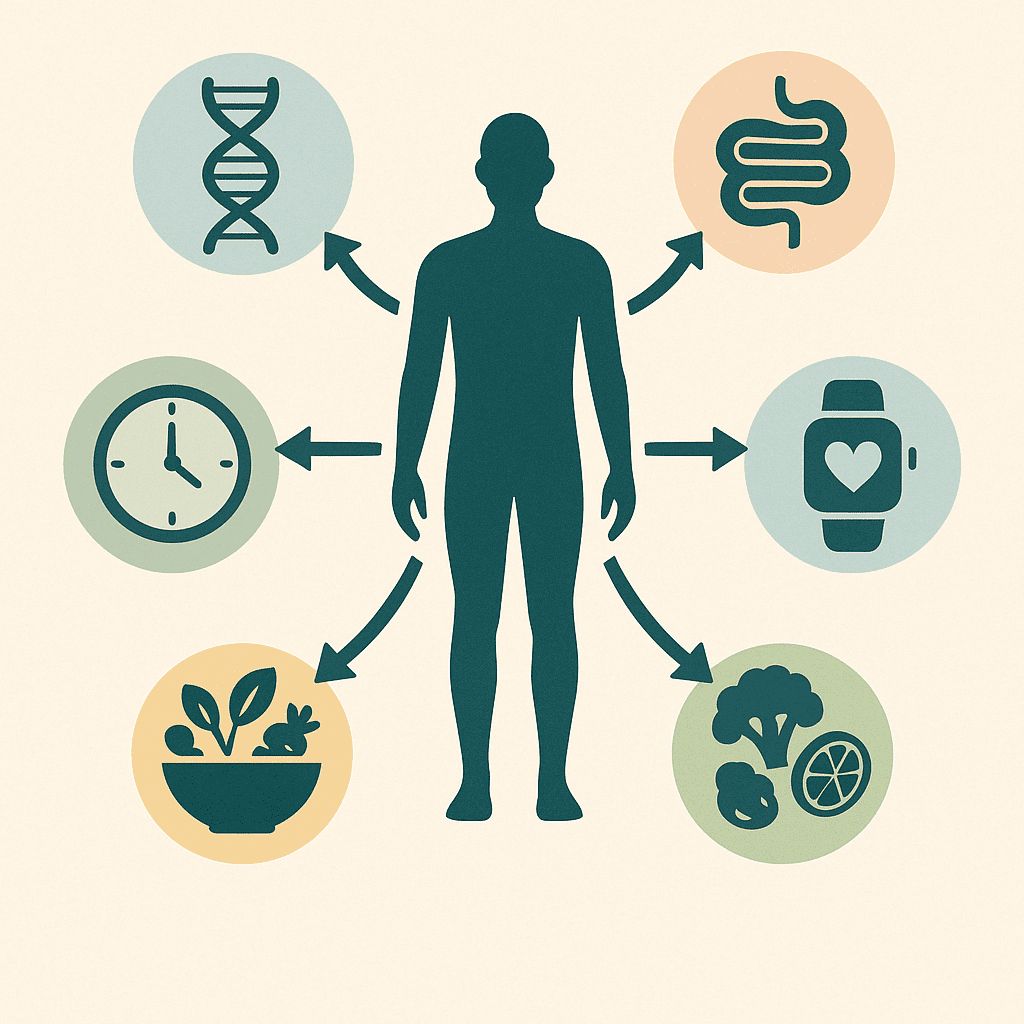
Scientific Evidence and Individualized Choices: Avoiding the One-Size-Fits-All Trap
A growing consensus in nutritional research affirms that the best diet for health is the one tailored to individual genetics, microbiomes, activity levels, and disease risks. While certain foods offer broad-spectrum benefits, personalization is key. What works for one person might not be ideal for another due to factors like food sensitivities, metabolic conditions, or nutrient absorption differences.
However, this complexity doesn’t diminish the importance of good foundational choices. Patterns consistently associated with longevity and metabolic resilience—such as the Mediterranean, DASH, or Blue Zones diets—emphasize minimally processed, whole foods. These include the best diet foods discussed throughout this article, from leafy greens and legumes to fermented items and omega-3-rich seafood.
Using continuous glucose monitoring (CGM) devices, food sensitivity testing, and microbiome profiling are emerging strategies to further refine individual nutrition plans. But even without these tools, a return to unprocessed, plant-forward, nutrient-dense eating can yield meaningful health improvements. When asking what food is good for your personal journey, the answer lies not in extreme restriction but in informed inclusion.
Frequently Asked Questions (FAQ) about a Healthy Diet and Nutrition
1. What are some good diet foods to incorporate into my daily meals?
Incorporating good diet foods into your daily routine can significantly improve your overall health. Fresh vegetables like spinach, kale, and broccoli are excellent diet foods because they are nutrient-dense and low in calories. Whole grains such as quinoa, brown rice, and oats are also among the best diet foods for sustaining energy throughout the day. Additionally, incorporating healthy fats from sources like avocado, nuts, and olive oil can promote heart health and keep you feeling full. Remember, it’s essential to choose a variety of these foods to ensure you’re getting the best foods for you, tailored to your specific dietary needs.
2. How can I identify the best diet for health?
The best diet for health isn’t a one-size-fits-all approach; it should be personalized based on individual health goals. To find what is healthier for you, consider the foods that nourish your body without causing inflammation or other negative effects. A balanced diet that emphasizes whole, unprocessed foods like lean proteins, legumes, vegetables, and healthy fats is often regarded as one of the best diets for health. Moreover, listen to your body and make adjustments to your food choices based on how they make you feel—whether that’s more energy, better digestion, or improved mood.
3. What food is good for improving mental clarity and focus?
The right food can greatly enhance mental clarity and cognitive function. Excellent diet foods for brain health include omega-3 rich foods such as salmon, walnuts, and flaxseeds. These are known for supporting brain function and protecting against cognitive decline. Additionally, foods high in antioxidants, like berries and dark chocolate, can improve focus and memory. To optimize mental performance, consider adding foods that promote steady blood sugar levels, such as whole grains and fiber-rich vegetables. Consuming these best foods for you can contribute to sustained mental energy throughout the day.
4. How do I determine what is healthier between different food options?
When trying to decide what is healthier between two food options, focus on their nutritional content. Look for foods that are high in essential nutrients and low in added sugars, unhealthy fats, and sodium. For example, while both white bread and whole-grain bread are carb sources, the whole-grain option is richer in fiber, vitamins, and minerals. The best diet foods prioritize natural, whole foods over processed ones. By learning how to read food labels and considering the overall nutritional value, you can easily determine what food is good for your diet.
5. Are there any food groups I should focus on for optimal health?
To achieve optimal health, it’s crucial to focus on several key food groups. First, prioritize high-quality proteins like lean meats, beans, and legumes. These provide amino acids essential for muscle repair and immune function. Healthy fats, such as those from olive oil, avocado, and nuts, support brain health and help regulate hormones. Additionally, excellent diet foods like leafy greens, cruciferous vegetables, and berries should be staples in your meals. Incorporating a variety of these best foods for you will provide the necessary vitamins, minerals, and antioxidants for long-term health.
6. What are some examples of excellent diet foods for weight loss?
When aiming for weight loss, it’s important to choose foods that are nutrient-dense yet low in empty calories. Excellent diet foods for weight loss include high-protein options like chicken, turkey, and tofu, which help promote satiety. Low-calorie vegetables like cucumbers, spinach, and cauliflower are also great choices for reducing overall caloric intake. Whole grains, such as quinoa and barley, are fiber-rich and keep you feeling full for longer. Focus on these best foods for you, which will not only support weight loss but also contribute to overall health.
7. How can I build a diet plan using the best foods for you?
Building a personalized diet plan requires considering your unique health goals and dietary needs. Start by incorporating the best foods for you based on your activity level, metabolic rate, and specific health conditions. Begin with nutrient-dense fruits, vegetables, lean proteins, and whole grains to form the foundation of your meals. Make sure to balance your plate with healthy fats, which support cellular function. If you’re uncertain about specific food choices, consulting a registered dietitian can help ensure that you’re choosing the best diet for health based on your individual needs.
8. Are plant-based diets a healthier option?
A plant-based diet can be an excellent choice for health when balanced correctly. Many plant-based foods, such as beans, lentils, nuts, seeds, and vegetables, are rich in essential nutrients like fiber, vitamins, and minerals, making them some of the best diet foods available. These foods promote heart health, lower inflammation, and support weight management. However, it’s important to ensure you’re getting enough protein and vitamin B12, which are often found in animal-based foods, so include fortified foods or supplements as needed. Ultimately, a plant-based diet can be healthier if it includes a variety of nutrient-dense foods.
9. What foods should I avoid for better long-term health?
Certain foods should be limited or avoided for better long-term health. Highly processed foods, sugary snacks, and fried foods are often low in nutritional value and can contribute to chronic health conditions. Refined grains, like white bread and pasta, should be replaced with whole grains, which are richer in fiber and nutrients. Foods high in trans fats, such as many commercially baked goods, should also be minimized. Focusing on whole, unprocessed foods is one of the best ways to ensure you are eating what is healthier for your body and making the best diet choices for health.
10. How can I ensure that I’m getting the best foods for me?
To ensure that you’re getting the best foods for you, focus on variety and quality in your food choices. Plan meals that incorporate a wide range of fruits, vegetables, whole grains, healthy fats, and lean proteins. Pay attention to your body’s response after eating certain foods—this can help you understand what foods work best for you. In addition, it’s important to stay informed about food sourcing and avoid overly processed ingredients that may lack nutrients. By being mindful of both quality and balance, you can make sure you’re consuming the best diet foods for your individual health needs.
Final Thoughts: Empowering Your Plate With Science-Backed Choices
Understanding what the best diet foods are isn’t about memorizing lists or adhering to rigid rules—it’s about developing an informed, adaptive relationship with food that prioritizes long-term health over short-term trends. The most excellent diet foods aren’t necessarily the rarest or most expensive items; they’re often humble ingredients available in your local grocery store, chosen and prepared with intention.
Whether you’re seeking to prevent disease, optimize energy, or simply feel better day to day, the best diet for health is built on variety, balance, and nutrient synergy. Good diet foods work together to create harmony in your body’s systems—balancing blood sugar, nurturing the gut, and reducing inflammation. These foods support not only physical vitality but cognitive and emotional resilience, offering a foundation for wellness that goes beyond the plate.
In the end, asking what is healthier isn’t about eliminating joy from eating; it’s about elevating the act of nourishment. By integrating science-backed strategies and honoring your body’s individual needs, you can craft a dietary pattern that supports every aspect of your life. And that, perhaps, is the most empowering insight of all.
Was this article helpful? Don’t let it stop with you. Share it right now with someone who needs to see it—whether it’s a friend, a colleague, or your whole network. And if staying ahead on this topic matters to you, subscribe to this publication for the most up-to-date information. You’ll get the latest insights delivered straight to you—no searching, no missing out.
Further Reading:
A List of 50 Super Healthy Foods
What are the benefits of eating healthy?
Disclaimer: The content published on Better Nutrition News (https://betternutritionnews.com) is for informational and educational purposes only. It is not intended as a substitute for professional medical advice, diagnosis, or treatment. Always seek the guidance of a qualified healthcare professional before making any changes to your diet, nutrition, or wellness practices. The opinions expressed by authors and contributors are their own and do not necessarily reflect those of Better Nutrition News.
Better Nutrition News and its affiliates make no representations or warranties regarding the accuracy, completeness, or reliability of the information provided. We disclaim all liability for any loss, injury, or damage resulting from the use or reliance on the content published on this site. External links are provided for reference purposes only and do not imply endorsement.


